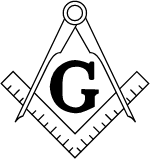Introduction to Freemasonry
Freemasonry is one of the world’s oldest secular fraternal societies and which originated in Scotland. Below we explain Freemasonry as it exists under the Grand Lodge of Scotland which is the corporate body governing Freemasonry in Scotland and Scottish Masonic Lodges in many other parts of the world. The explanation may correct some misconceptions. Freemasonry is a society of men concerned with moral and spiritual values. Its members are taught its precepts by a series of ritual dramas. These remain substantially the same form used in Scottish stonemasons lodges, and use Scottish stonemasons’ customs and tools as allegorical guides.
Freemasonry and Religion
The essential qualification for admission into and continuing membership is a belief in a Supreme Being. Membership is open to men of any race or religion who can fulfil this essential qualification and who are of good repute. Freemasonry is not a religion, nor is it a substitute for religion. The one essential qualification means that Freemasonry is open to men of many religions and it expects and encourages them to continue to follow their own faith. It is not permitted for Freemasons to discuss religion at Masonic meetings.

Principles of Freemasonry
For many years Freemasons have followed three great principles: Brotherly Love: Every true Freemason will show tolerance and respect for the opinions of others and behave with kindness and understanding to his fellow creatures. Relief: Freemasons are taught to practise charity and to care – not only for their own – but also for the community as a whole, both by charitable giving and by voluntary efforts and works as individuals. Truth: Freemasons strive for truth, requiring high moral standards and aiming to achieve them in their own lives. Freemasons believe that these principles represent a way of achieving higher standards in life.